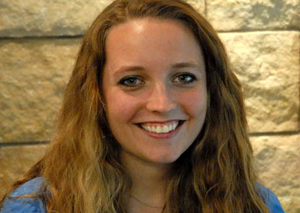Twenty-six students from 10 different undergraduate and community college programs have joined the Institutional Development Award Program (IDeA) Networks of Biomedical Research Excellence (INBRE)/ Biomedical Research Infrastructure Network (BRIN) program.
 |
Gill Cromwell |
Today we meet Gill Cromwell, a sophomore majoring in bioinformatics at the University of Nebraska at Omaha.
What should we know about you?
I’m 19 years old, I’m a vegan and I love listening to music. I’ve always had an interest in anything academic.
What or who influenced your interest in science?
Knowledge is like a commodity to me. I have an unquenchable thirst for it and a strange desire to acquire as much of it as possible.
What is it about science that excites you?
Science specifically excites me because it is the cutting edge. It isn’t just my own developing mind that’s expanding, it’s humanity’s collective mind. Science broadens our understanding of the world around us and there will always be a demand for scientists.
Will you pursue a career in science? If so, what do you hope to accomplish?
I am hoping to pursue a career in science or, at the very least, keep it an important part of my life. My life’s goal is to become a doctor and go into Doctors Without Borders. I know that might be a pipe dream, but I’ve had it in my head that that’s what I would do with my life ever since my freshman year in high school.
Why is it important to have programs like INBRE?
I feel that it’s incredibly important to have programs like INBRE to keep students interested, motivated and excited about science and research. It is a great impetus for learning and it incorporates a new generation into the research community.